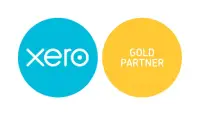The ATO thinks so. They believe we are using them like a free loan.
I’m not so sure that is true. A free loan is when you are given money and repay it without interest. Last time I checked, the ATO charged about 8% interest on amounts due to them. It’s not what I would call accessible.
According to the ATO, small business is sitting on a cash pile and can pay but choose not to. I would like to know who these small businesses are because I have yet to see many of them.
We all know the ATO has become tougher on debts outstanding. I have been saying for some time that it is not in the nature of the ATO to be kind. Covid forced them to be kind, but it is not in their DNA, so it was only a matter of time before they got the boys with muscles to start knocking on doors.
So much so we accountants and tax agents have been asked to “assist.” Now I am not sure what that means but last time I checked my job was to ensure tax returns are filed on time, ensure my clients pay the minimum in tax and to let my clients know what their responsibilities are including making payments on time. I guess that includes planning for tax liabilities but asking me to do the collection work? Nope, I won’t be doing that.
Yes, I will tell clients they need to pay their taxes and yes I will assist in helping to plan so that those taxes are paid. I am also happy to contact clients and let them know the ATO is chasing amounts due to them but that is about it. I cannot and will not do the ATO’s job for them.
If taxpayers do not make payments, the ATO needs to determine why that is. In my view, the tax system is overly complex. My clients are confused. We have BASs. Then, we have instalment activity Statements. Then you have corporate taxes, FBT taxes, personal taxes, and Superannuation. And don’t get me on the topic of Capital Gains. Then add State taxes such as payroll tax, stamp duty and land taxes and you fall in a vat of despair. No wonder we are behind in taxes.
Make it simple and tax gets paid.
Small businesses owe over $33 billion of the $50.2 billion debt. And $23bn of that is BAS debts (GST and mostly PAYGW or tax on employees’ earnings).
Here is what I will tell you. BAS amounts, PAYGW amounts, and Superannuation does not belong to you. Yet many businesses assume they do. And that is why it gets many businesses into trouble.
This is why I think you should separate these amounts and put them away as soon as they arise. When you do not do that, you assume what is in your bank account is available for you to spend. And guess what? You will spend it. But if you put it aside, you know what is left you can spend but more importantly when it comes to paying the ATO you have the money to pay.
So how do you make this work in practice? Well, every time you run payroll, transfer the PAYGW amount and Superannuation into a separate ‘taxes’ account. Every week add up the money received into your bank account transfer a % to this ‘taxes’ account too to cover your GST bill. What the % should be depends on each business and industry. Eg for us we transfer about 9% but for a manufacturing business it might be 5%. Speak to us and we will help you work it out.
Do that and you should have enough to pay for the ATO. And that should keep the boys with muscles away, too.
But I know what you are thinking. If you transfer all this money it will cause a cashflow problem and you will struggle to run the business. If that happens it means your business model is unsustainable. It means either costs are too high, or sales are too low.
And that is the beauty of separating amounts due to the ATO. The ATO is right in this respect. These monies do not belong to the business. They belong to the ATO. And if after taking that out the business is struggling it means you need to sit down with your advisor and come up with a plan to either increase sales or reduce costs.
And the beauty is also that if you can identify this while it is staring you in the face, the chances are you are going to do something about it immediately while you are still in control rather than 12 months down the line when you have no control.
Tax reviews and running an efficient lean mean machine as a business is step 2 and 3 of our 9 steps to financial freedom and real wealth. If you would like to know more about our 9 steps to working less, earning more and creating real wealth contact Hitesh at hitesh@wowadvisors.com.au or Ros at ros@wowadvisors.com.au or call 0731619548.



